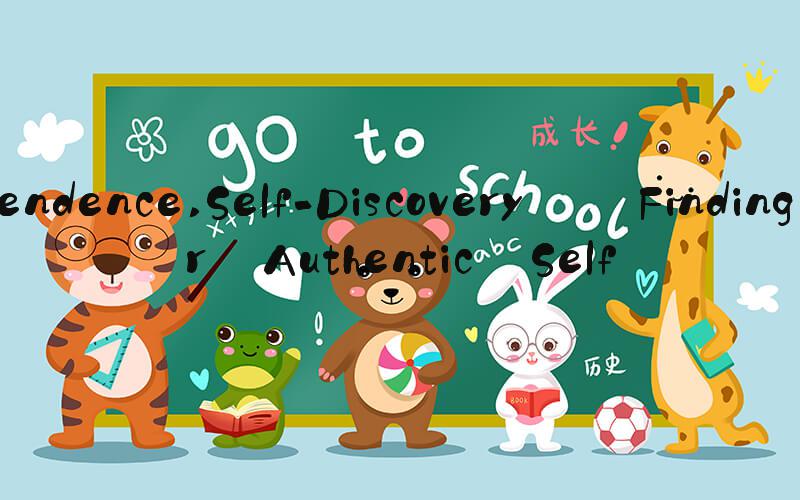
Independence: Achieving Freedom and Self-Reliance
Independence is the ultimate goal for individuals seeking to achieve a life of freedom and self-reliance. It means being in control of one's own destiny, making decisions without the influence of others, and living without the fear of being dependent on someone else. However, true independence is not easy to attain and requires a lot of hard work, determination, and self-discipline.
Self-Discovery: Finding Your Authentic Self
The journey towards independence begins with self-discovery. To achieve true independence, you first need to know who you are, what you want, and what values are important to you. Self-discovery requires examining your thoughts, beliefs, and behaviors to identify your strengths, weaknesses, and areas for improvement. Only by understanding yourself can you make decisions that align with your values, goals, and aspirations.
Overcoming Fear: Facing The Unknown
Fear is one of the biggest obstacles to achieving independence. Fear of the unknown, fear of failure, and fear of being alone can prevent you from taking risks and making decisions that will lead to success. To overcome fear, you need to acknowledge and confront it head-on. This means stepping outside of your comfort zone, taking calculated risks, and being willing to fail. While this can be scary, it's the only way to grow and achieve independence.
Financial Independence: Managing Your Finances
One of the key components of independence is financial freedom. This means being able to support yourself financially without relying on others. Achieving financial independence requires managing your finances effectively, which includes creating a budget, reducing debt, saving for emergencies, and investing for the future. By being financially independent, you not only free yourself from the burden of debt and financial obligations but also gain the ability to make decisions without the influence of others.
Building Skills: Becoming Self-Reliant
To achieve independence, you need to have skills that enable you to rely on yourself. This means developing a range of skills, from problem-solving to communication and leadership. It also means acquiring technical skills that are relevant to your profession, such as programming or graphic design. Building skills not only empowers you to take charge of your life but also increases your value in the workforce, making you more marketable and desirable to employers.
Support and Relationships: Balancing Independence and Interdependence
While independence is a desirable trait, it's important to strike a balance between independence and interdependence. Interdependence involves building supportive relationships with friends, family, and colleagues and seeking help when needed. It means recognizing that you can't do everything alone and that there's strength in seeking advice and support from others. Achieving independence doesn't mean cutting yourself off from others but rather creating a network of supportive relationships that empower you to achieve your goals.
Conclusion: The Value of Independence
Independence is not just about achieving a life of freedom and self-reliance. It's about gaining control of your life, making intentional decisions, and living a fulfilling and meaningful life. While it's not easy to achieve independence, it's a journey worth taking. By embarking on the path towards independence, you'll discover your true self, overcome your fears, gain financial freedom, build valuable skills, and forge meaningful relationships. In short, you'll discover a life of purpose and fulfillment.

